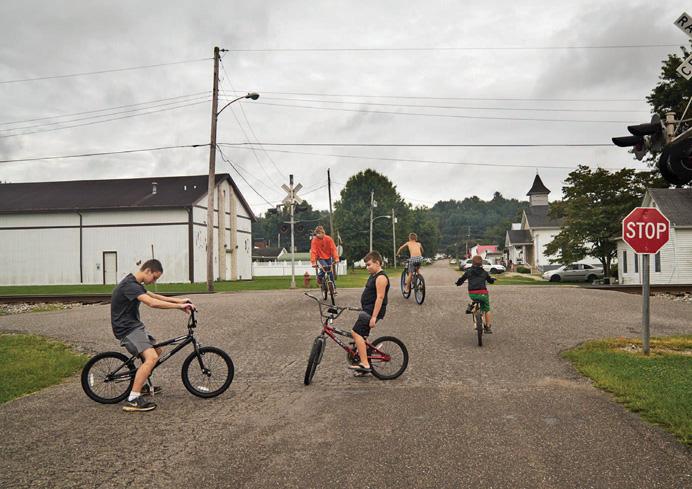Prøve GULL - Gratis
DEMONIZING RURAL AMERICA
TIME Magazine
|June 10, 2024
By the time I was 7 or 8 years old, I was keenly aware of my father's drug use. He didn't snort pills in front of me yet―he saved that for my teen years—but he talked about pills freely, and I knew he took them. And by the time I became an adult, everyone in my nuclear family-and plenty in my extended family-was struggling to cope with the impacts of violence, incarceration, and addiction.

I grew up in Appalachian eastern Kentucky, where systemic poverty has been a challenge for many decades. We always joked that Kentucky was 20 years behind the rest of the country, but as a kid I didn't understand what we really faced: underfunded schools, inadequate transportation systems, poor health care, unreliable utilities. Prescription pain pills flooded into our region and did nothing to cure our collective pain, but instead exacerbated the personal and social struggles that the region is often associated with.
Through a wide range of experiences, I learned at a young age that we were poor, white trash. The stereotypes about us were, and continue to be, disdainful and dismissive, mixed with a potent disgust for good measure. Americans have discarded and scapegoated various socioeconomic groups throughout our history. Unlike many biases that we have reckoned with, though, the vitriolic view of Appalachia-and to some extent, other areas of rural America-stems from an entrenched classism that remains unchallenged in our collective moral consciousness.
Denne historien er fra June 10, 2024-utgaven av TIME Magazine.
Abonner på Magzter GOLD for å få tilgang til tusenvis av kuraterte premiumhistorier og over 9000 magasiner og aviser.
Allerede abonnent? Logg på
Listen
Translate
Change font size
